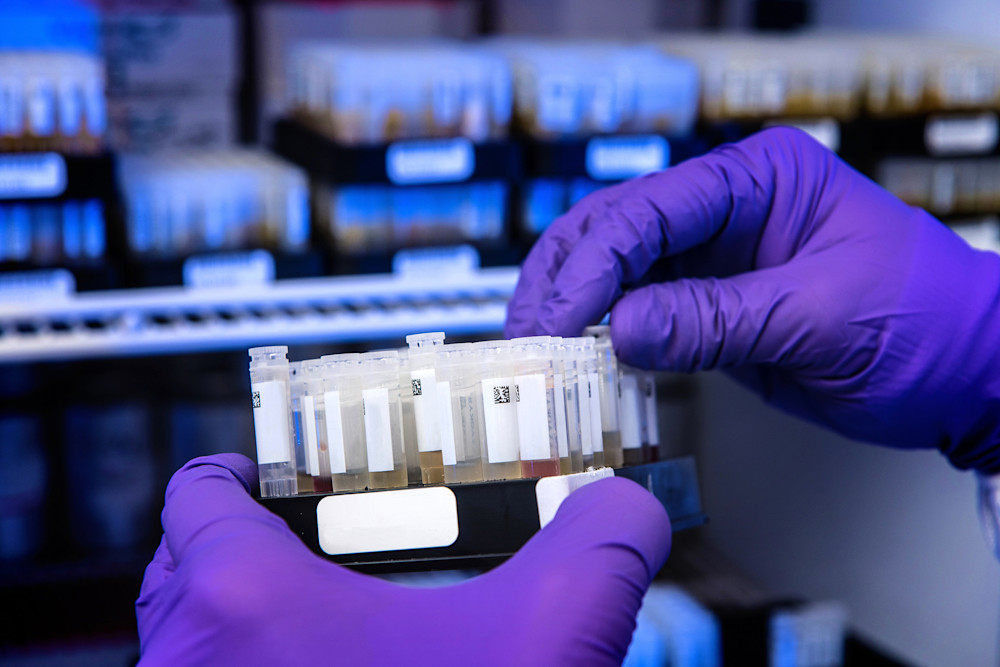Insights
Liquid Biopsy: What is it?
Written by Jeff Waldron — 2022-01-31.
Liquid biopsy is the collection of a body fluid sample, most commonly blood, to test for relevant biomarkers to inform patient management. In addition to measuring intact circulating tumor cells (CTCs), liquid biopsy has expanded to include circulating tumor DNA (ctDNA) and cell-free DNA or RNA (cfDNA or cfRNA). Importantly, studies have demonstrated the potential of liquid biopsies to better capture tumor heterogeneity versus a tissue biopsy that can only capture tumor biomarkers in the tissue sample.
Benefits
The clinical utility of liquid biopsy is reinforced by numerous other advantages including:
Ease of collection
Low risk of adverse effects
Ability to perform serial testing, which is useful in clinical trials
Potential to assess the whole-body impact of disease and response to therapy
Potentially lower cost of diagnostic testing and much faster turnaround time for results than tissue biopsies, which can then accelerate interventions
The potential applications of liquid biopsies include:
Screening for presence of disease
Patient stratification and therapy selection
Monitoring treatment response and drug resistance
Detection of minimal residual disease (MRD) after surgery / recurrence
Also, regulatory approval progress has been slowly advancing for liquid biopsies. In 2020, the FDA approved two comprehensive genomic profiling liquid biopsy tests . . . the Guardant360 CDx which detects changes in 60 different genes, and the FoundationOne Liquid CDx which can identify mutations or alterations in 300 genes as well as help determine tumor mutation burden and microsatellite instability, key indicators for potential immunotherapy response.
Limitations
The first limitation of liquid biopsies in clinical applications is the lack of being a proven “gold standard” that tissue biopsies have long been. To prove their utility, interventional clinical trials are needed. Liquid biopsies still carry the risk for false-positive or false-negative results, prompting the FDA to recommend confirmation of a negative result from the Guardant360 CDx and the FoundationOne Liquid CDx with a tissue biopsy test.
Next, while the FDA has approved liquid biopsies for people with certain advanced cancers to help guide therapy decisions and detect earlier the recurrence of disease, it remains to be seen if cancer screening of the general population is beneficial. The argument is that earlier detection of cancer is only valuable if there are available effective therapies or interventions that can be started earlier to help patients. Otherwise, the result could be people living longer knowing they have an incurable disease. H. Gilbert Welch from the Center for Surgery and Public Health at Brigham & Women’s Hospital states that “I want to know if multi cancer liquid biopsy screening of the general population will help people live longer.”
Conclusion
Liquid biopsies will continue to evolve in the application of precision medicine to cancer detection, diagnosis, and treatment. They have enormous advantages of being non-invasive, low cost, and better able to detect the heterogeneity of cancer. However, the extent to which they can replace standard tissue biopsies is unclear.
References
“There’s a New Frontier in Detecting Cancer: Blood Tests”; Jonathan Saltzman; Boston Globe; January 26, 20022
"Liquid Biopsy: From Discovery to Clinical Application”; Catherine Alix-Panabieres and Klaus Pantel; American Association for Cancer Research Journal; April 3, 2021
“The Future of Liquid Biopsy”; Catherine Alix-Panabieres; Nature; March 26, 2020
“ctDNA Assays: Exploring Their Clinical Use in Oncology Care” Pashtoon Kasi; ASCO Daily News; January 13, 2022
“Precision Oncology: Advancing the Development of Liquid Biopsy-Based Diagnostics with NGS”; Rob Fannon; Onco’Zine; November 16, 2021
"Liquid Biopsy: Misplaced Faith in Early Cancer Detection?”; H. Gilbert Welch; STAT News; August 31, 2021
“The Evolution of Liquid Biopsy in Cancer Care”; Jo Cavallo; The ASCO Post; October 10, 2021
IDEA Pharma
We work with clients early in lifecycle, crafting a compelling product story and building a best-in-class strategy that helps every molecule reach its potential. It’s what we do best. And there’s nobody that does it quite like us IDEA Pharma
